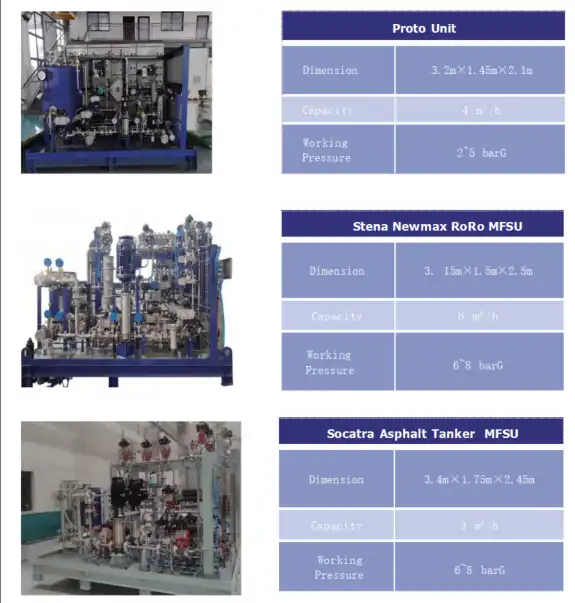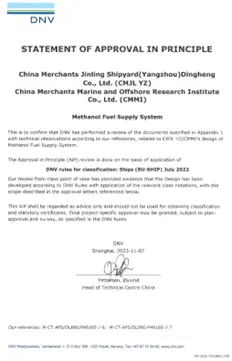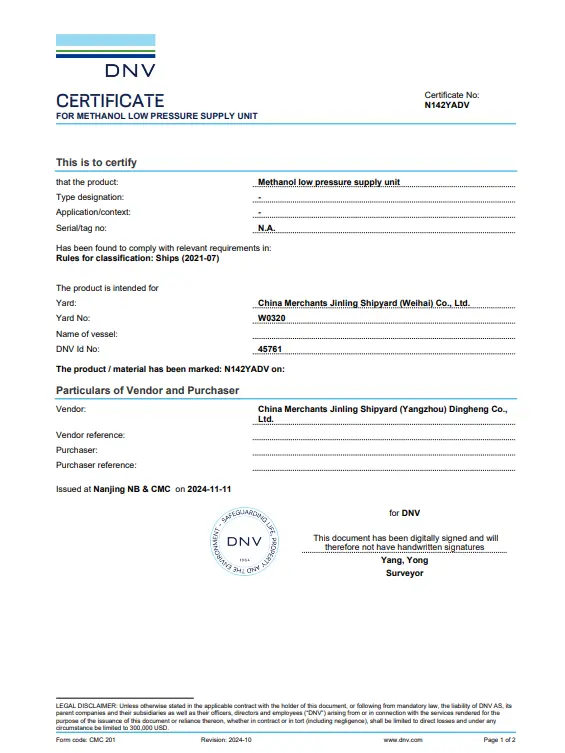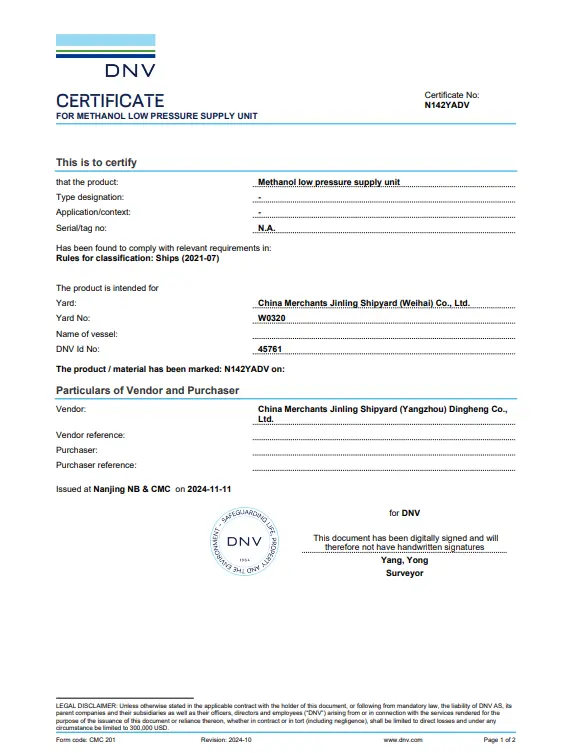Methanol Fuel Delivery Mechanism
Overview of the Methanol Fuel Delivery Mechanism (MFSS)
The Methanol Fuel Delivery Mechanism (MFSS) includes a range of essential subsystems, such as the filling and transfer module, main supply unit, auxiliary support systems, and safety and control components. We are fully capable of independently designing and producing MFSS units, or delivering fully customized systems to meet specific client requirements.

WHY CHOOSE US?
1. Deep Industry Knowledge – Our team offers extensive expertise in the engineering and construction of dual-fuel ships, chemical tankers, liquefied gas carriers, and associated systems.
2. Comprehensive System Solutions – We deliver integrated services covering the complete range of Methanol Fuel Delivery Mechanism (MFSS), LNG (FGSS), Ammonia (AFSS), and LPG Cargo Handling Systems (CHS).
3. Reliable Performance Record – We have successfully delivered 19 clean fuel supply and cargo handling systems, including two MFSS skids for Stena RoRo, proving our consistent commitment to quality.
4. Innovation at the Forefront – As one of the earliest domestic developers of methanol fuel supply units, we began R\&D and commercial activities in late 2022.
5. Full Lifecycle Coverage – From initial design and manufacturing to on-site installation and multi-unit deployment, we provide thorough and reliable after-sales service throughout the system's entire lifecycle.
Product Specifications

Product Overview
1. METHANOL SUPPLY UNIT – This unit maintains key methanol parameters—pressure, temperature, flow rate, and cleanliness—in full alignment with the specifications set by engine manufacturers. It ensures stable flow and pressure under varying engine loads and operates reliably during system startup, shutdown, and transitions.
2. FILLING & DELIVERY SYSTEM – Built in strict compliance with SOLAS-IBC Code requirements for chemical tankers, the system ensures safe methanol handling during bunkering, storage, and transfer, while addressing its inherent properties such as low flashpoint, toxicity, and corrosiveness.
3. MODULAR DESIGN FOR FLEXIBILITY – The modular configuration allows for flexible deployment and easy adaptation to a vessel’s layout. It can be offered either as a standalone unit or as part of a fully integrated solution.
4. MEETS ALL RELEVANT SAFETY STANDARDS – The system complies with both SOLAS-IBC Code safety regulations for chemicals and the IGF Code standards for low flashpoint fuels, ensuring consistently safe operation.
5. BESPOKE SOLUTIONS FOR SHIPOWNERS – Whether for new construction or retrofit needs, we provide reliable, custom-engineered solutions that accommodate the operational demands of shipowners.
QUALITY ASSURANCE
DNV AIP Certificate



Installation Process
1. Begin with a detailed review of the vessel’s design documents and interface specifications, resolving any remaining technical queries beforehand.
2. Gather all necessary tools and installation equipment, and implement all required safety measures prior to beginning work.
3. Transport the prefabricated methanol fuel supply module to the designated installation location, and use appropriate lifting tools to position it correctly.
4. Mount the module base onto the vessel structure, ensuring it is accurately aligned and meets flatness and structural stability requirements as per design.
5. Connect methanol pipelines, auxiliary lines, and control cables, carefully inspecting seals and confirming all electrical connections are secure and correct.
6. Carry out both individual subsystem checks and full system integration tests to ensure the bunkering, supply, and safety control features are fully functional.
For more product information about Methanol Fuel Delivery Mechanism, please leave a message below.
